Sleep is an essential aspect of human well-being, and a good night’s sleep has numerous benefits for our physical and mental health. Creating a conducive sleeping environment can greatly contribute to the quality of our sleep, and one effective way to achieve this is by incorporating plants into our bedrooms. This article explores plants that have been scientifically proven to promote better sleep by purifying the air, reducing anxiety, enhancing oxygen levels, combating allergies, and creating a relaxing atmosphere.
Having a bedroom filled with soothing plants not only adds aesthetic appeal but also helps create a serene atmosphere conducive to optimal sleep. One such plant is lavender, which has long been recognized as an ultimate sleep aid due to its calming scent. Scientific studies have shown that the aroma of lavender can reduce heart rate and blood pressure, leading to feelings of relaxation and tranquility. Another plant that can purify the air in your bedroom while improving your sleep is Aloe Vera. Known for its ability to remove toxins from the air, Aloe Vera releases oxygen at night while absorbing carbon dioxide – a process that promotes better breathing and ultimately enhances sleep quality.
Lavender: The Ultimate Sleep Aid
Lavender, renowned for its calming properties and soothing fragrance, stands as an unparalleled botanical sleep aid. The benefits of lavender essential oil for sleep have been widely documented and studied. Research suggests that the scent of lavender has a sedative effect, helping individuals to relax and fall asleep faster. Lavender essential oil has also been found to improve the quality of sleep by reducing restlessness and promoting deep sleep stages.
To incorporate lavender into your bedtime routine, there are several options available. One popular method is using lavender essential oil in a diffuser or aromatherapy device before going to bed. This allows the scent of lavender to fill the room, creating a tranquil environment conducive to sleep. Another option is adding a few drops of lavender essential oil to a warm bath before bedtime. The relaxing aroma can help calm both the mind and body, preparing you for a restful night’s sleep.
Incorporating lavender into your bedroom can significantly enhance your quality of sleep. The benefits of lavender essential oil for sleep include relaxation, reduced restlessness, and improved overall sleep quality. Whether through the use of diffusers or adding it to your bath routine, harnessing the power of this botanical remedy can contribute to a more peaceful and rejuvenating slumber.
Aloe Vera: Purify the Air and Sleep Better

Aloe Vera, known for its air-purifying properties, can create a serene and refreshing atmosphere in your sleeping space. As one of the most popular indoor plants, Aloe Vera not only adds aesthetic value to your bedroom but also offers several benefits for better sleep. One of the key benefits of having plants in your bedroom is their ability to improve air quality by removing toxins and releasing oxygen. Aloe Vera specifically has been found to effectively filter formaldehyde and benzene from the air, which are common indoor pollutants emitted by household products and synthetic materials.
In addition to purifying the air, Aloe Vera also releases oxygen at night, making it an ideal plant for enhancing sleep quality. During photosynthesis, plants typically release oxygen during the day and absorb carbon dioxide at night. However, Aloe Vera follows a different pattern and continues releasing oxygen throughout the night as well. This unique characteristic makes it a suitable choice for those seeking improved air quality even while they sleep.
When choosing plants for better sleep, it is essential to consider their maintenance requirements. Aloe Vera is relatively low-maintenance and can thrive in various lighting conditions, including indirect sunlight or artificial light sources common in bedrooms. Additionally, its succulent nature allows it to retain water efficiently, reducing the need for frequent watering. This makes Aloe Vera a practical choice for individuals who may not have green thumbs or ample time to devote to plant care.
To conclude, incorporating Aloe Vera into your bedroom can provide multiple benefits for better sleep. Its air-purifying properties aid in creating a healthier environment by filtering out harmful pollutants such as formaldehyde and benzene. Moreover, Aloe Vera’s ability to release oxygen throughout the night contributes to improved sleep quality. With its low-maintenance requirements and adaptability to various lighting conditions, this versatile plant can be an excellent choice when selecting plants that promote optimal sleep conditions in your bedroom.
Snake Plant: Improve Air Quality for a Peaceful Sleep
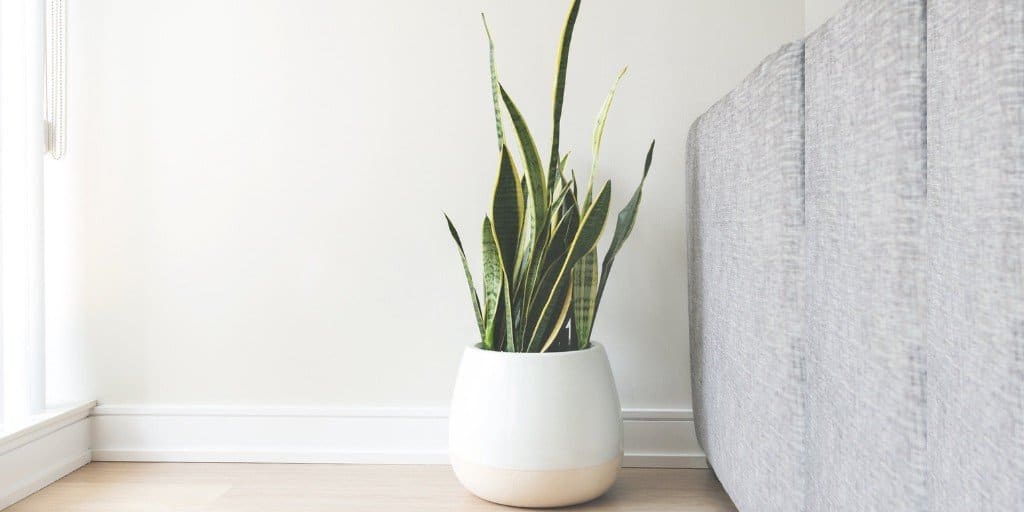
Snake Plant, known for its ability to improve air quality, can create a serene and refreshing atmosphere in your sleeping space. This plant is highly recommended for those seeking to enhance their indoor environment and reap the benefits of having plants in their bedroom. Snake Plants are renowned for their exceptional capability to purify the air by removing toxins such as formaldehyde, benzene, and trichloroethylene. These volatile organic compounds (VOCs) are commonly found in household products and can negatively impact indoor air quality, leading to respiratory problems and sleep disturbances. By absorbing these harmful substances through their leaves and converting them into oxygen during the night, Snake Plants effectively contribute to a healthier indoor environment conducive to better sleep.
Moreover, Snake Plants also release oxygen at night due to their unique photosynthetic pathway called crassulacean acid metabolism (CAM). This process allows them to convert carbon dioxide into oxygen even when other houseplants cease producing it during nighttime. The increased levels of oxygen released by Snake Plants can help improve sleep quality by reducing carbon dioxide levels in the bedroom while promoting fresh air circulation. In turn, this rejuvenates the atmosphere and creates an ambiance characterized by tranquility and relaxation, ensuring a more restful slumber throughout the night. The presence of Snake Plants not only adds aesthetic appeal but also provides tangible health benefits that positively impact both physical well-being and sleep patterns.
Peace Lily: Promote Restful Sleep and Reduce Anxiety
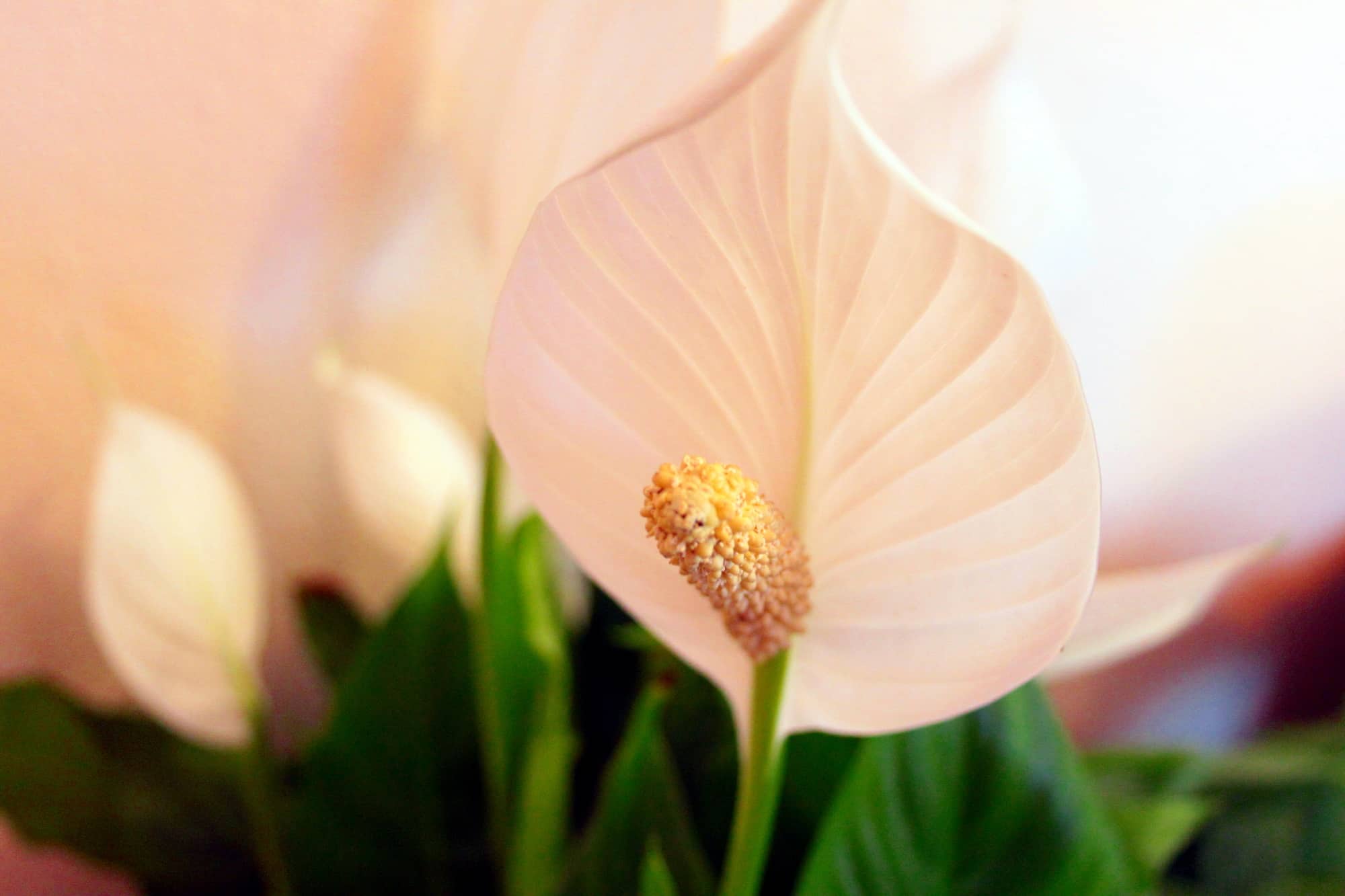
The Peace Lily is a popular choice for those seeking to promote restful sleep and reduce anxiety. This plant, scientifically known as Spathiphyllum, has been found to have calming effects on the mind and body. Its lush green leaves and delicate white flowers create a soothing atmosphere in the bedroom, promoting relaxation and tranquility. The Peace Lily is also known for its ability to purify the air by removing harmful toxins such as formaldehyde, benzene, and carbon monoxide, which can contribute to poor sleep quality. By improving air quality, this plant creates a healthier sleeping environment that further enhances the benefits of restful sleep.
In addition to promoting relaxation, the Peace Lily is believed to reduce stress levels. Research has shown that being in close proximity with nature can have a positive impact on mental health and well-being. The presence of plants in indoor spaces has been associated with lower stress levels and increased feelings of calmness. The Peace Lily’s aesthetic appeal coupled with its ability to improve air quality creates an ideal setting for stress reduction. Its vibrant green foliage adds a touch of nature indoors while its tranquil white flowers create a serene ambiance that promotes peaceful sleep.
Overall, incorporating a Peace Lily into your bedroom décor can be highly beneficial for both physical and mental well-being. Not only does it promote relaxation through its calming presence but it also reduces stress levels by creating a serene environment. With its air-purifying properties and aesthetic appeal, this plant serves as an excellent choice for those looking to enhance their sleep quality and overall sleep experience.
English Ivy: Combat Allergies and Enhance Sleep Quality
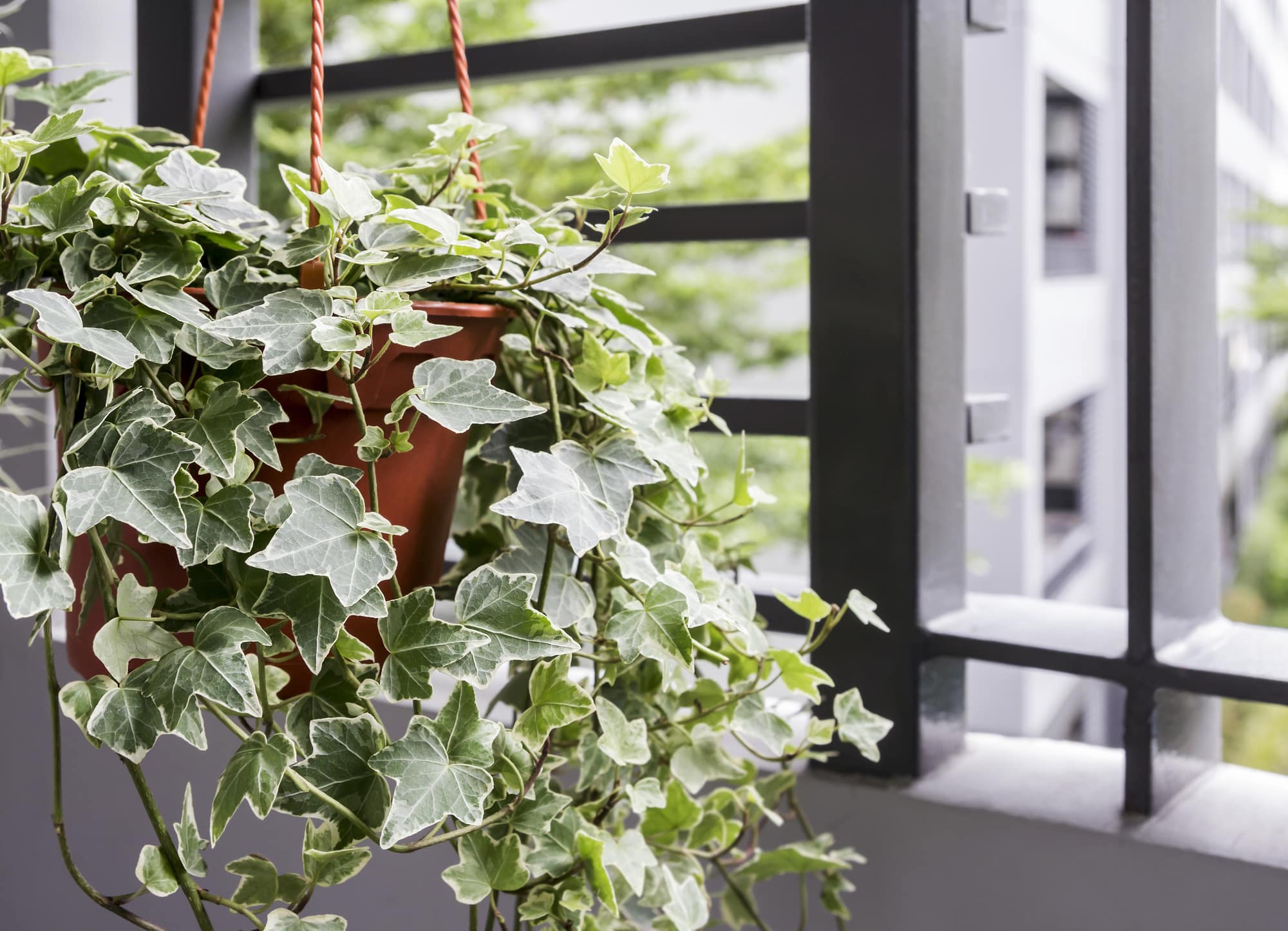
English Ivy, known scientifically as Hedera helix, has been found to combat allergies and enhance sleep quality through its air-purifying properties. This plant is highly effective in reducing airborne mold particles, which are a common allergen and can trigger allergic reactions such as coughing, sneezing, and congestion. By removing these irritants from the air, English Ivy helps create a cleaner and healthier sleeping environment for individuals with respiratory conditions or allergies.
Furthermore, English Ivy has been shown to reduce stress levels, which can have a positive impact on sleep quality. Research suggests that being exposed to natural elements like plants can help lower cortisol levels and promote a sense of calmness and relaxation. The presence of greenery in the bedroom can create a soothing atmosphere conducive to restful sleep. Additionally, English Ivy’s ability to filter pollutants from the air may also contribute to better sleep by improving indoor air quality. Clean air free from toxins allows for easier breathing during sleep, resulting in less interruptions throughout the night and ultimately enhancing overall sleep experience.
Incorporating English Ivy into the bedroom can be beneficial for those looking to combat allergies and improve their sleep quality. Its air-purifying properties make it an excellent choice for filtering out allergens like mold particles while also creating a more serene sleeping environment. By reducing stress levels and enhancing indoor air quality, this plant contributes to better overall sleep health.
Jasmine: The Natural Stress Reliever for a Good Night’s Sleep
Jasmine, a fragrant flowering plant known for its calming properties, has been found to be a natural stress reliever that can improve sleep quality. The scent of jasmine has long been used in aromatherapy for its ability to promote relaxation and reduce anxiety. Research studies have shown that the aroma of jasmine can significantly decrease heart rate and increase feelings of calmness, leading to improved sleep. In a study published in the Journal of Biological Chemistry, it was found that the fragrance of jasmine had sedative effects similar to medications like Valium, but without any harmful side effects.
In addition to its stress-relieving properties, jasmine also has other benefits that contribute to a good night’s sleep. Like lavender, which is often hailed as the ultimate sleep aid, jasmine contains compounds called terpenes that have a soothing effect on the body and mind. These terpenes interact with receptors in the brain and nervous system, promoting relaxation and helping to induce sleep. Furthermore, inhaling the scent of jasmine has been found to increase levels of serotonin in the brain – a neurotransmitter involved in regulating mood and promoting feelings of well-being.
Overall, incorporating jasmine plants into your bedroom can help create a peaceful environment conducive to restful sleep. Its natural stress-relieving properties combined with its pleasant fragrance make it an excellent choice for those seeking better sleep quality. Whether you choose to enjoy the aroma through essential oils or prefer having live plants in your bedroom, incorporating jasmine into your bedtime routine may just be what you need for a good night’s sleep.
Spider Plant: Increase Oxygen Levels and Enhance Sleep
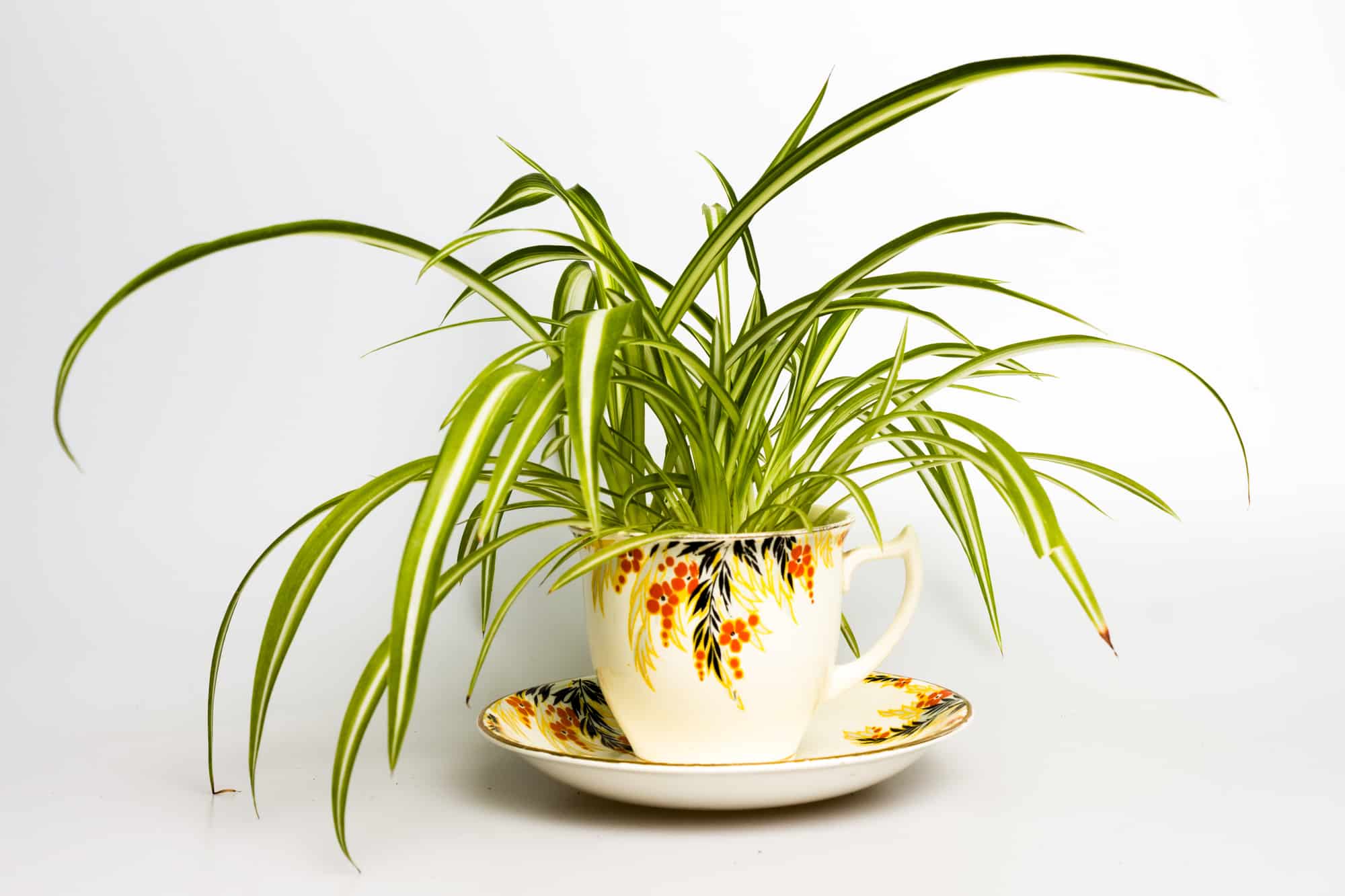
Spider plants, with their ability to increase oxygen levels and enhance sleep, are a valuable addition to any bedroom for those seeking a truly restful night. These plants are known for their air-purifying qualities, making them excellent choices for improving indoor air quality. Spider plants have the unique ability to remove harmful toxins, such as formaldehyde and xylene, from the air. By doing so, they create a healthier environment that promotes better sleep.
To maximize the benefits of spider plants in your bedroom, it is important to provide proper care. These plants thrive in bright but indirect sunlight, so placing them near a window is ideal. They prefer well-drained soil and should be watered regularly but not excessively. Overwatering can lead to root rot and negatively affect plant health. Spider plants also benefit from occasional misting or placing them in humid areas as they appreciate higher humidity levels.
In addition to their air-purifying qualities, spider plants also contribute to better sleep by increasing oxygen levels in the room. During photosynthesis, these plants absorb carbon dioxide and release oxygen into the surrounding atmosphere. This process helps improve indoor air quality by reducing carbon dioxide levels while simultaneously increasing oxygen content. As a result, having spider plants in your bedroom can create an optimal sleeping environment that promotes deep and restful sleep.
Overall, spider plants offer numerous benefits when it comes to improving indoor air quality and enhancing sleep. By providing proper care and ensuring adequate light and humidity levels, these plants can thrive in your bedroom while contributing to better overall sleep quality through increased oxygenation of the environment . Additionally, some studies have shown that certain plants, such as lavender and jasmine, have calming and soothing effects, which can promote relaxation and help individuals fall asleep faster. Moreover, having indoor plants in the bedroom can also reduce stress levels and create a more peaceful and serene atmosphere conducive to a good night’s sleep.
Valerian: The Herbal Remedy for Insomnia
Valerian, a well-known herbal remedy for insomnia, has been used for centuries to promote better sleep. Valerian is a perennial plant native to Europe and Asia, with its roots being the main component used for medicinal purposes. The roots contain compounds such as valerenic acid and valepotriates that are believed to have sedative properties.
One of the benefits of valerian is its ability to help improve sleep quality. Research has shown that valerian can increase the amount of time spent in deep sleep, which is the most restorative stage of sleep. This can result in waking up feeling more refreshed and energized. Additionally, valerian has been found to reduce the amount of time it takes to fall asleep, making it particularly useful for those who struggle with falling asleep quickly.
Another way valerian can be used as a natural sleep aid is by consuming it in the form of tea. Valerian tea is made by steeping dried valerian root in hot water for about 10-15 minutes. Drinking a cup of valerian tea before bedtime can help promote relaxation and prepare the body for sleep. It is important to note that while valerian is generally considered safe, it may cause drowsiness or dizziness in some individuals. Therefore, it is recommended to start with a low dose and gradually increase if needed.
Valerian has long been recognized as an effective herbal remedy for insomnia. Its sedative properties make it beneficial for improving sleep quality and reducing the time it takes to fall asleep. Consuming valerian as a tea can provide a natural and relaxing way to incorporate this herb into your bedtime routine. However, as with any herbal supplement, it is best to consult with a healthcare professional before using valerian as a sleep aid.
Golden Pothos: Create a Relaxing Atmosphere for Better Sleep
To create a calming and soothing environment conducive to better sleep, incorporating the presence of Golden Pothos in your bedroom can be considered. Golden Pothos, also known by its scientific name Epipremnum aureum, is a popular houseplant that not only adds aesthetic appeal but also offers several benefits for improving sleep quality. This plant has been found to purify the air by removing toxins such as formaldehyde, benzene, and xylene. By reducing these harmful substances in the air, Golden Pothos helps create a cleaner and healthier indoor atmosphere, which can contribute to a more restful sleep.
In addition to its air-purifying properties, Golden Pothos requires minimal care and maintenance. It thrives in low-light conditions and can tolerate irregular watering, making it an ideal choice for those with limited gardening experience or busy schedules. To incorporate this plant into your bedroom decor, you can place it on a nightstand or hang it from the ceiling using a macrame hanger. Its cascading vines provide an elegant touch while also adding a sense of tranquility to the space. Alternatively, you can train the vines to climb up a trellis or wall for a more dramatic effect. Overall, incorporating Golden Pothos into your bedroom not only enhances the visual appeal but also promotes better sleep through its air-purifying qualities and low-maintenance nature.
Areca Palm: Enhance Air Quality and Promote Serene Sleep
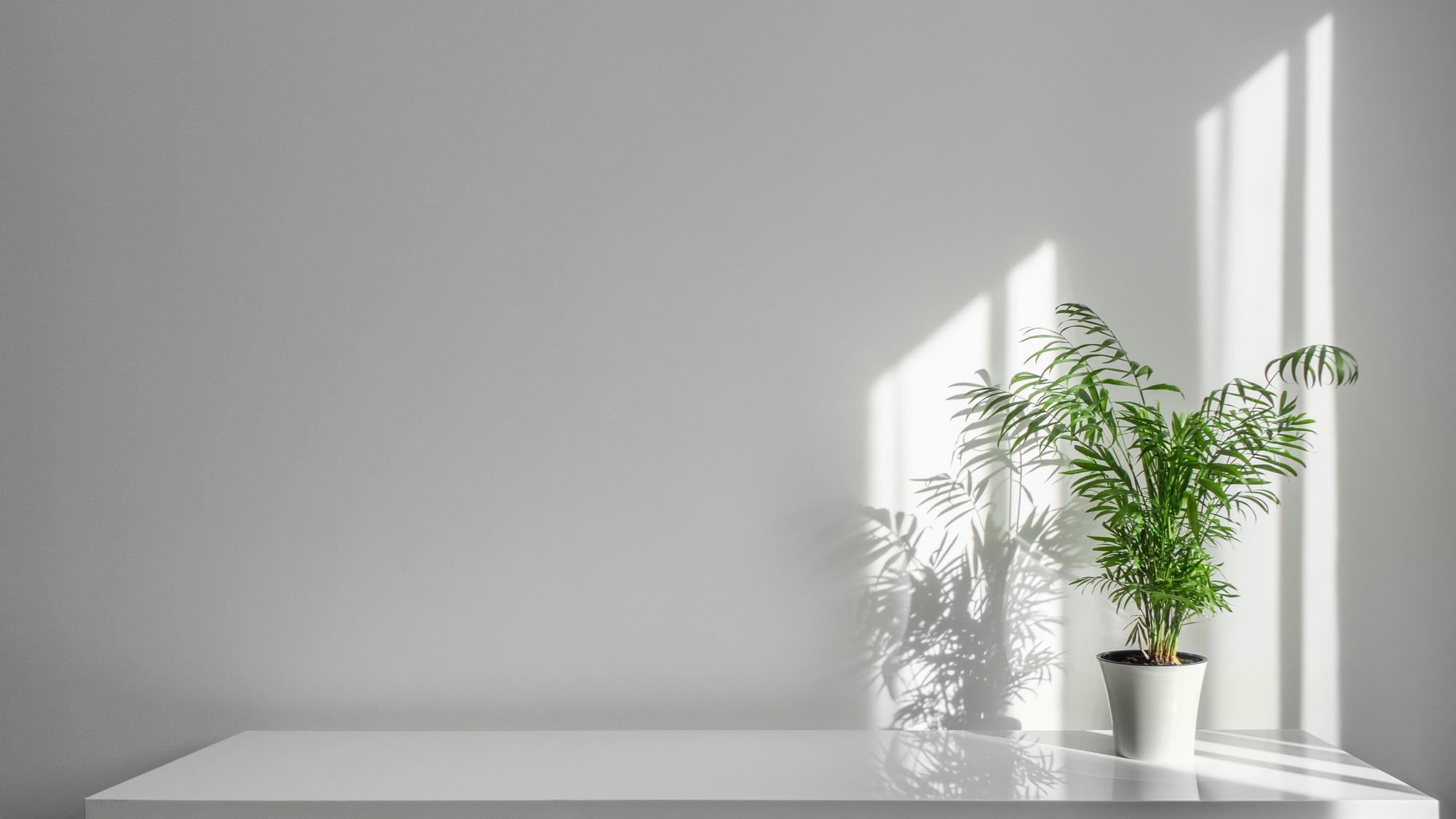
The Areca Palm is a houseplant that can enhance the air quality in your bedroom and promote a serene sleep environment. Incorporating plants in indoor spaces, such as the Areca Palm, offers numerous benefits for individuals seeking better sleep. Plants are known to improve air quality by removing toxins and releasing oxygen through photosynthesis. The Areca Palm is particularly effective in this regard as it has been found to be one of the best air-purifying plants according to NASA’s Clean Air Study. By filtering harmful chemicals from the air, this plant creates a healthier and more conducive environment for sleep.
In addition to its air-purifying properties, the presence of an Areca Palm in your bedroom can also contribute to a more serene sleep environment. The sight of lush green foliage can have a calming effect on our minds and help reduce stress levels. This psychological impact can be especially beneficial when trying to wind down before bedtime. Furthermore, incorporating plants like the Areca Palm into your sleep-friendly bedroom design aligns with tips recommended by experts. Creating a soothing ambiance with soft lighting, comfortable bedding, and natural elements like plants can help signal to your brain that it is time to relax and prepare for sleep. Thus, placing an Areca Palm in your bedroom not only improves air quality but also enhances the overall atmosphere for a restful night’s sleep.
Conclusion
In conclusion, incorporating plants into your bedroom can have a significant impact on the quality of your sleep. Lavender, with its soothing aroma, has been proven to promote relaxation and improve sleep quality. Aloe Vera and Snake Plant are excellent choices for purifying the air and creating a peaceful environment. Peace Lily is known for reducing anxiety and promoting restful sleep.
English Ivy can help combat allergies, ensuring a better night’s sleep for allergy sufferers. Spider Plant increases oxygen levels in the room, contributing to enhanced sleep quality. Valerian, an herbal remedy for insomnia, can be a natural alternative to sleeping pills.
Lastly, Golden Pothos and Areca Palm not only create a relaxing atmosphere but also enhance air quality, promoting serene sleep. By incorporating these plants into your bedroom decor, you can experience improved sleep patterns and wake up feeling refreshed and rejuvenated each morning.
Overall, by choosing the right plants for your bedroom space, you can create an environment that promotes deep relaxation and optimal restfulness.


